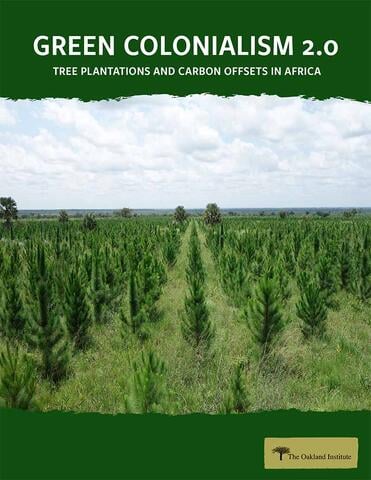Resource information
Green Colonialism 2.0: Tree Plantations and Carbon Offsets in Africa examines the African Forestry Impact Platform (AFIP) bankrolled by European development finance institutions, Japanese oil interests, and an Australian investment firm. The AFIP exemplifies the green colonialism that President Ruto of Kenya is promoting on the continent — opening the door for more extraction of Africa's resources. Despite AFIP’s claim of promoting “nature-based solutions,” a troubling pattern of exploitation and greenwashing underscores its investments, stakeholders, and financial backers. AFIP’s first acquisition is Green Resources, a Norwegian plantation forestry and carbon credit company notorious for its history of land grabbing, human rights violations, and environmental destruction across Uganda, Mozambique, and Tanzania.
Kenya’s promotion of voluntary carbon markets overlooks their fundamental flaws. Over the span of more than two decades, they have miserably failed to reduce carbon emissions, and instead wreaked social havoc by causing forced evictions, loss of livelihoods, and violence. Conflicts of interest, fraud, and speculation plague these markets while the expansion of carbon offset schemes and tree plantations results in expropriation of community lands to generate profits for investors. Far from benefiting Africa, the expansion of carbon markets sustains the status quo of resource exploitation, greenhouse gas pollution, and North/South power imbalances.

